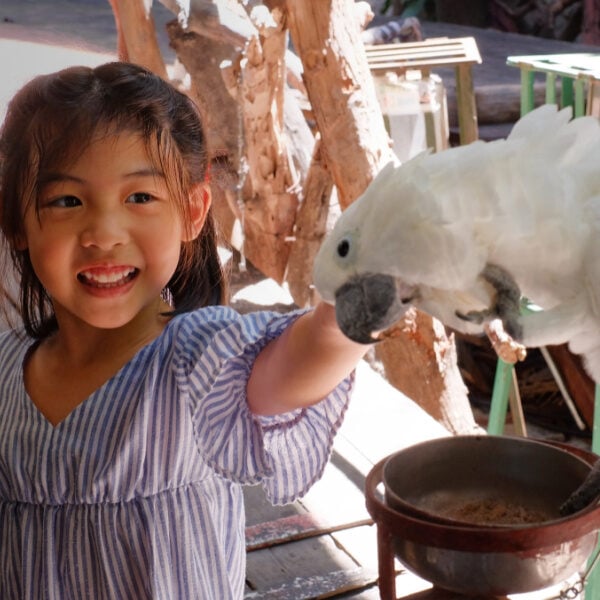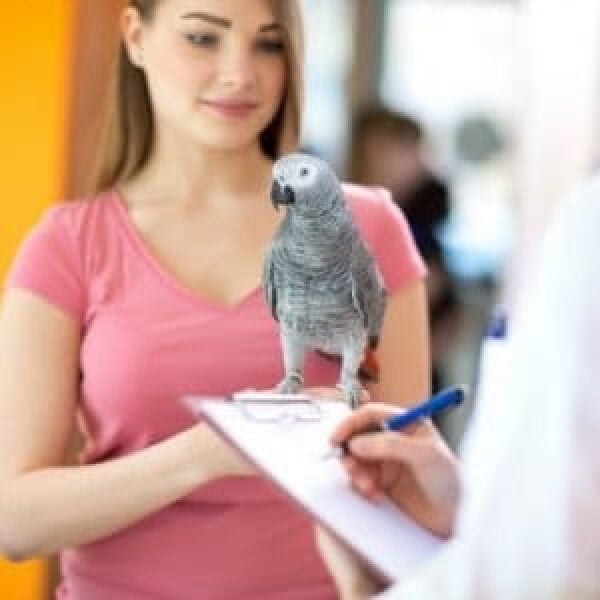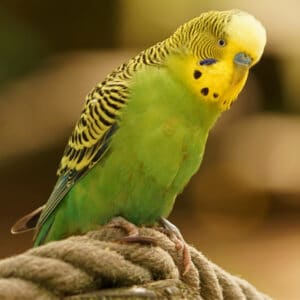Last Updated on by Mitch Rezman
Laurie J writes
I’M SO CONFUSED!!!
I read your article about extending the daylight of a hormonal bird and if that doesn’t work, setting up artificial light for 72 hours …no vet has ever recommended this and I thought it was brilliant and much better idea then lupron!!! (you’re now my go-to resource -even before a vet..and I will support you guys anyway I can!!) it makes perfect sense.
When days get shorter & winter comes, birds naturally want to nest, right? …and hormonal issues arise.
But now I have found just as much evidence to the contrary:
from the Beauty of Birds website
Triggers of Breeding Behavior:
Extended hours of light.
Lengthening days and increased amounts of artificial light will cause a bird’s reproductive organs to increase in size which in turn triggers a significant increase in hormonal activity.
Decrease the amount of light your bird gets every day.
Ensure that your pet is getting 11-12 hours of darkness per night.
Limiting the amount of daylight and/or artificial light the bird receives.
If you cannot sufficiently darken the room the bird is in, then put a dark cover over the cage.
From Bird Supplies
2 – Decrease your parrot’s exposure to light.
As a rule, your bird requires at least 11 to 13 hours of complete darkness every night.
You’ll want to make sure the room your bird is in can be completely dark, and if you cannot darken the room sufficiently, you will want to put a dark blanket or cover on the cage.
From three birds and a cloud
Light – too much daylight stimulates the hormones by making a parrot think ‘spring’ all the time.
Give your pet bird 12-14 hours of undisturbed sleep in the complete dark.
Any artificial light does the same thing as the sun in terms of imitating good breeding conditions.
You are such a valuable resource, help me understand what I’m missing here?
Best, Laurie
Hi Laurie
re: I’M SO CONFUSED!!!
I read your article about extending the daylight of a hormonal bird and if that doesn’t work, setting up artificial light for 72 hours …no vet has ever recommended this, and I thought it was a brilliant and much better idea then lupron!!!
MitchR responds: Veterinarians get $50 to $80 a pop for a Lupron injection ~ per month for 3 – 4 months.
They make no money sending your bird home to sit under a light.
BTW dummy eggs only fuel broodiness.
Always remove any eggs your hen has laid she forgets (hopefully) about being a mommy.
Other research we follow that confirms this is from
RE: Beauty of birds
“Understand that this is a natural behavior”.
MitchR responds: Amazons are notorious as one-person birds so they are a terrible example.
We have seen on more than one occasion violently attack the single person they are bonded with years.
Have the family member the bird has picked limit their interaction with your bird, spend time with the bird when that family member is absent, and ensure that only you are the one to provide all favorite treats and activities.
MitchR responds: see comment above
The environment can also be altered somewhat to attempt to reduce breeding behavior.
Limiting the daylight hours to mimic a winter sun will often help.
MitchR responds: “At the Equator, the daytime period always lasts about 12 hours, regardless of the season. (from https://en.wikipedia.org/wiki/Daytime)
Birds have instinctual expectations after tens of millions of years living with 12 hours of light and 12 hours of darkness had come from regions of the earth close to the equator.
These instinctual expectations do not go away after half a dozen generations of human intervention, which is why North American light cycles are confusing and stressful for pet birds.
Windy City Parrot double cage lighting set up ~ video
When all of your instincts tell you the sun should be out but it’s now dark, birds are only thinking one thing “holy crap why is this happening and what do I do now?”
Birds are diurnal, not nocturnal they enjoy light, not darkness.
In some instances, the vet may prescribe drugs that balance out a pet’s hormones.
MitchR responds: I’m the guy that gets the emails after the birds have been injected with drugs like Lupron, Haldol and Xanax saying things like “I am so sorry I had this done to my bird”
Xanax is a psych drug. We are in the middle of an drug epidemic with millions of addicted people so why do we think birds are going to be immune from this very same problem?
Lupron, a hormone facilitator for prepubescent women and Haldol a psychotropic drug never been authorized to be used in the veterinary community and zero testings have been done on birds are either drug.
RE three birds and a cloud.
Light – too much daylight stimulates the hormones by making a parrot think ‘spring’ all the time. Give your pet bird 12-14 hours of undisturbed sleep in the complete dark. Any artificial light does the same thing as the sun in terms of imitating good breeding conditions.
I am in agreement with this because there is never “too much light” in North America.
Hope this helps.
Stay safe and healthy
MitchR
Author Profile
Latest entries
 Feeding Exotic BirdsDecember 29, 2025How to Switch or Convert Your Bird From Seeds to Pellets: Real-Life Case Studies and Practical Guidance
Feeding Exotic BirdsDecember 29, 2025How to Switch or Convert Your Bird From Seeds to Pellets: Real-Life Case Studies and Practical Guidance Feeding Exotic BirdsDecember 16, 2025A Practical, Budget-Smart Guide to Feeding Birds Well
Feeding Exotic BirdsDecember 16, 2025A Practical, Budget-Smart Guide to Feeding Birds Well Bird EnviornmentsDecember 7, 2025Understanding Budgie Cage Bar Orientation: Myths, Realities & Practical Solutions for Vertical-Bar Bird Cages
Bird EnviornmentsDecember 7, 2025Understanding Budgie Cage Bar Orientation: Myths, Realities & Practical Solutions for Vertical-Bar Bird Cages Feeding Exotic BirdsDecember 5, 2025How Dr. T.J. Lafeber Rewrote the Future of Pet Bird Nutrition
Feeding Exotic BirdsDecember 5, 2025How Dr. T.J. Lafeber Rewrote the Future of Pet Bird Nutrition




[email protected]
13 Jul 2025I disagree with you Mitch. Every article I have read on excessive egg laying says to reduce daylight hours. I have a parakeet who was always laying eggs at one point 12 in a row. I was scared for her so read up on everything. I tried the dummy eggs, removing food after a certain time, nothing worked. I finally reduced their daylight to 8 hrs a day it was like magic.
Mitch Rezman
15 Jul 2025Respectfully, one anecdotal story indicates little information. I received my instructions on the procedure from Dr. Gregory Harrison, who developed the process while in Vet college. At the time 10 years ago. Fast forward 25 years and we can illustrate hundreds of successful cases for the use of extended full-spectrum lighting